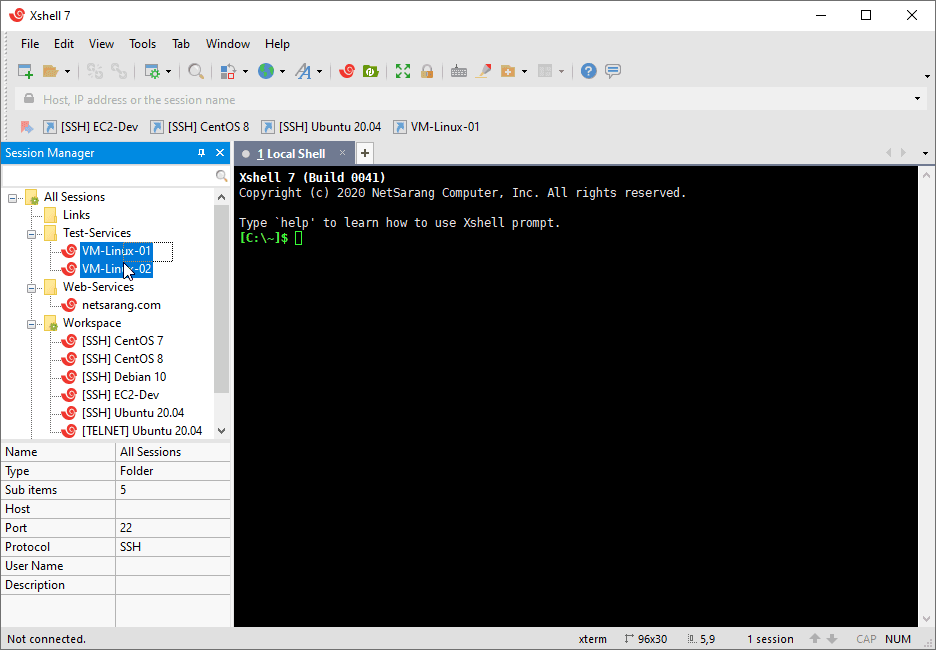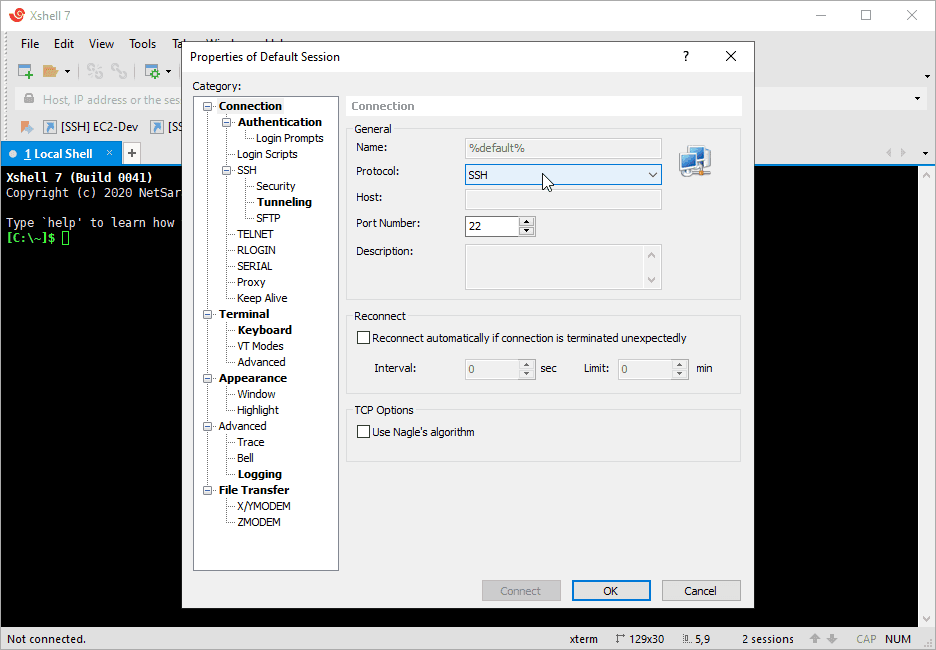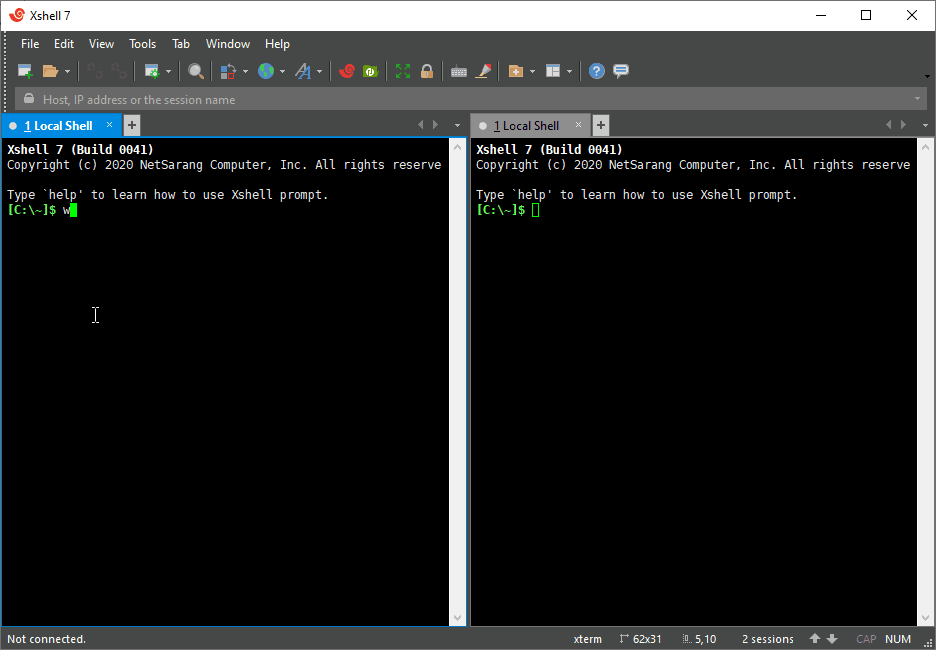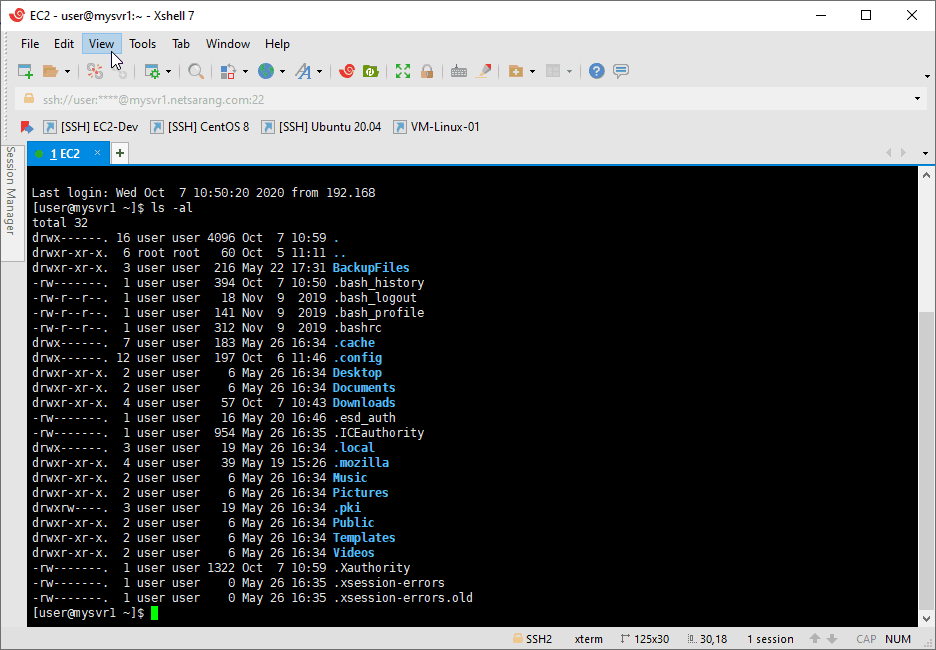










What is Xshell?
Xshell is a powerful and secure terminal emulator designed for the Windows platform, widely used for remote server management and operation. It supports a variety of protocols, including SSH1, SSH2, TELNET, SFTP, RLOGIN, and SERIAL, making it a versatile tool for IT professionals, network administrators, and developers who need to connect to and manage multiple servers and network devices. Xshell provides a user-friendly interface and robust security features, enabling users to execute commands, transfer files, and manage remote systems with ease and confidence.
Key Features and Highlights
1. Multi-Protocol Support
Xshell stands out for its comprehensive support of multiple protocols such as SSH1, SSH2, TELNET, SFTP, RLOGIN, and SERIAL. This wide range of protocol support ensures that users can connect to a variety of servers and network devices, regardless of the technology they use.
2. Advanced Security Features
Security is a top priority in Xshell. It offers robust encryption options, including RSA, DSA, and ECDSA algorithms, to ensure secure communication over potentially insecure networks. Additionally, Xshell supports password, public key, and GSSAPI authentication, providing multiple layers of security for your remote sessions.
3. Tabbed Environment and Session Management
Xshell provides a tabbed interface that allows users to manage multiple sessions within a single window. This feature is especially useful for users who need to monitor and interact with several servers simultaneously. The session manager also allows for easy saving and organizing of session details, streamlining the process of reconnecting to frequently used servers.
4. Scripting and Automation
For users who need to perform repetitive tasks, Xshell supports scripting and automation through its built-in scripting language. This allows users to write and execute scripts to automate routine operations, improving efficiency and reducing the risk of manual errors.
5. Dynamic Port Forwarding
Dynamic port forwarding is a feature in Xshell that allows users to securely tunnel network connections, making it possible to access remote network services as if they were local. This is particularly useful for accessing services behind a firewall or NAT.
6. Customizable User Interface
Xshell offers a customizable user interface, enabling users to tailor the software to their preferences. This includes the ability to adjust fonts, colors, and window layouts, making it easier to create a workspace that suits your needs.
In summary, Xshell is a versatile and secure terminal emulator that offers a comprehensive set of features tailored for professional use. Its support for multiple protocols, robust security options, and advanced features like tabbed sessions, scripting, and dynamic port forwarding make it an invaluable tool for managing remote servers and network devices. Whether you are an IT professional, network administrator, or developer, Xshell provides the functionality and flexibility needed to efficiently and securely manage your remote systems. With its customizable interface and support for the latest networking standards, Xshell stands out as a top choice for Windows-based terminal emulation.















